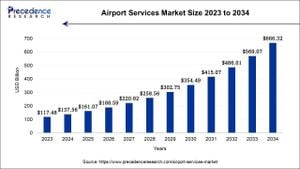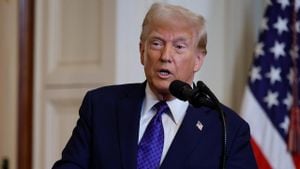Mecklenburg-Vorpommern has experienced significant political shifts following the recent Bundestagswahl, with the Alternative für Deutschland (AfD) claiming victory across all six electoral districts. The far-right party, once seen as fringe, now asserts itself as the dominant force, garnering 35 percent of the popular vote and doubling its previous electoral results from 2021.
Ministerpräsidentin Manuela Schwesig from the Sozialdemokratische Partei Deutschlands (SPD) has undergone considerable pressure since the election outcome, where her party's performance plummeted to only 12.4 percent, highlighting their struggles to connect with the electorate. "It was clear we’d been facing mounting losses not just over weeks but years," Schwesig noted critically, reflecting on the long-term challenges facing the SPD as they navigate the fallout from their disappointing results.
The AfD's success is historically significant—this marks the first time it has emerged as the strongest party during the Bundestagswahl. Political scientist Wolfgang Muno described the situation as the AfD's evolution to becoming a 'Volkspartei' (people's party) especially prominent within Eastern Germany. He emphasized, "The upcoming state election will likely spotlight the face-off between Schwesig and the AfD leading to heightened electoral competition.”
The electoral results were marked by the considerable losses experienced by traditional parties; the CDU (Christlich Demokratische Union) secured 17.8 percent, resulting in three seats, down from competition. Observing the atmosphere, CDU leader Philipp Amthor reflected on the shift, "Despite our standings, we must accept the AfD's significant gains. It certainly shows the need for our party to reevaluate its strategies moving forward.”
Contrastingly, the Bundesverband der Freien Demokraten (FDP) saw its presence minimized to just 3 percent, which reflects dwindling relevance, as articulated by their candidate Christian Bartelt. "It’s disappointing to see the party’s values losing traction, especially with the AfD drawing so much attention," he lamented, marking another loss for the Liberals, who have struggled historically.
Drama unfolded as the votes materialized: the AfD candidates characterized their results as the beginning of substantial change. For Enrico Komning and Ulrike Schielke-Ziesing—both winners within their districts—this was the culmination of years of targeting voter sentiments directly. “The voters have voiced their priorities clearly,” Komning said, highlighting his aim to resonate deeply with citizens shaken by economic uncertainties.
Political pessimism is palpable, extending to the SPD and its candidates. Reem Alabali-Radovan, the SPD’s spokesperson, counted the electoral defeat as “a bitter pill to swallow,” emphasizing the need for substantive reflection within the party as it faces discontented voters. "We fought valiantly, but we hardly made the case needed to win the confidence back."
For many candidates, it was not just about winning but also about reevaluations and reinventions. The political scene has projected uncertainty, particularly around coalition formations for future governance. The conversations about coalition possibilities featuring the CDU, SPD, and potentially even the AfD have begun; Schwesig acknowledged during post-election discussions, "I am committed to engaging with all political dialogues post-election but we must prioritize our core values."
It is evident voters face increasing political polarization; as Amthor highlighted, "A coalition of CDU/CSU cannot ignore the implication of AfD's rise." A significant shift could pave the way for new alliances. Muno stated, "What we see is not just fluctuated support but potentially radical changes for how policies will be shaped going forward.”
The aftermath discussion includes consideration of the SPD's approach to the current political climate which involves strategies not only to entice voters back but also to realistically keep abreast of the AfD’s advances. Confirming the party’s stance, Schwesig remarked, "We have to appeal consistently to the concerns unaddressed for too long; our message must resonate with the people."
Overall, the dramatic turn of events marks what many deem as 'the end of left-green dominance' observed by Leif-Erik Holm, AfD's state leader, who stated, “The election results signal substantial political rearrangement; we are gaining ground and voice within the Bundestag.” The shifting dynamics such as increased representation of far-right ideologies present both opportunities and challenges for establishing credible opposition across different government branches.
Across the political spectrum, calls for introspection are rife; as illustrated by Erik von Malottki of the SPD who insisted, "We will have to reconsider not just names and faces but also command over contents to retain our historical roots with the population,” stressing the urge for revitalization among the party structures amid prevalent electoral angst.
This election has certainly brought forth multifaceted challenges for longstanding politicians and parties, demanding adjustments amid quickly changing public sentiment. The scene is set for 2026, and discussions on how parties will position themselves within the electoral fray are already underway. The focus now rests squarely on how both previously marginalized voices and entrenched ideologies will find pathways to prominent political dialogues moving forward.



